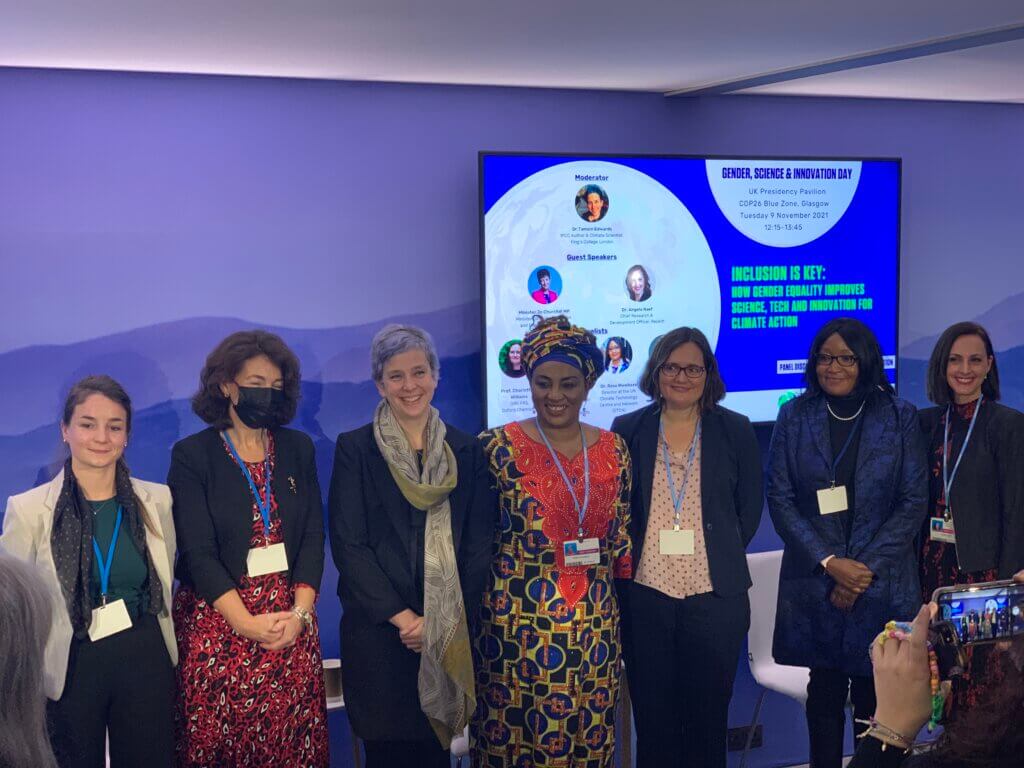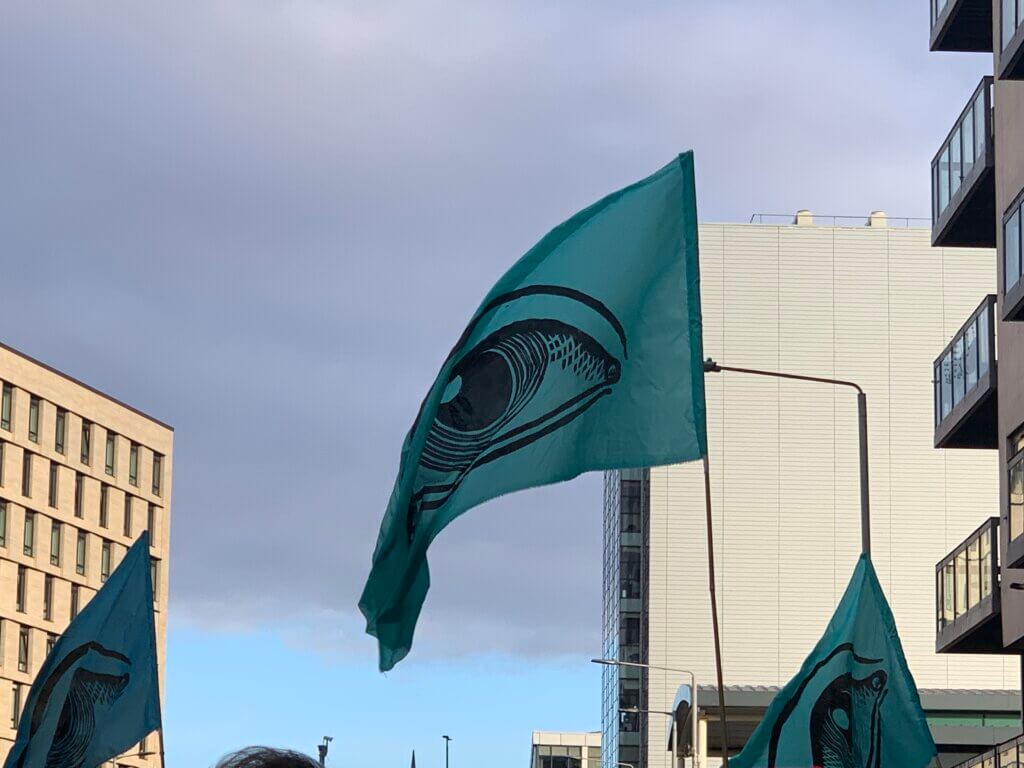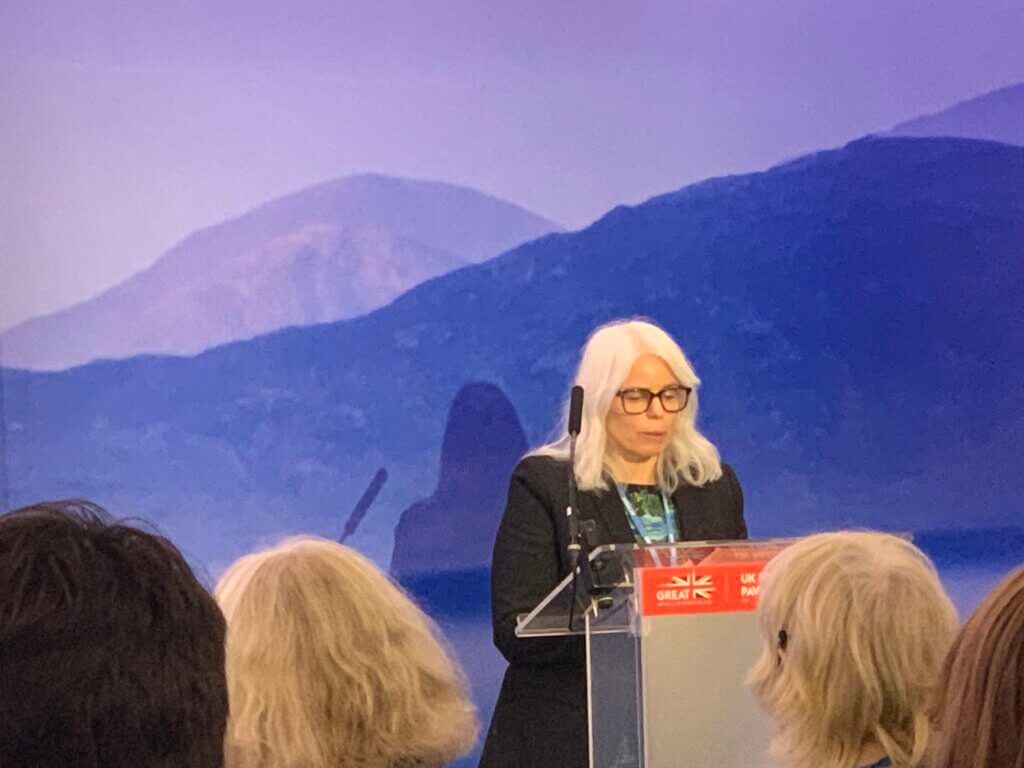COP26 Day 9: Gender, Science and Innovation
Word of the day: Accountability
Momentum has been building throughout the first week with a flurry of press releases, announcements, and commitments made from multiple countries on deforestation, methane and coal. All of this has been very positive. However, a new report out today from Climate Action Tracker (CAT), the world’s most respected climate analysis coalition, suggests we are on course for a rise of 2.4C. This sobering assessment was based on countries’ short-term goals for the next decade and put into perspective the scale of commitments needed to achieve the necessary 1.5C.
Tuesday’s focus at COP26 is Gender, Science and Innovation. A key theme from the events I have attended today has been consistently putting women and girls at the heart of policies, initiatives, and technologies. This links to one of the key themes from yesterday. Any innovations, technologies, or policies must be designed with the end-user in mind. More often than not, the end-user is the communities.
UK Pavilion: Inclusion is Key: How Gender Equality Improves Science, Tech and Innovation for Climate Action
This panel shone a spotlight on how increased diversity across the globe benefits climate action, and it highlighted the critical role gender-responsive solutions play in improving Science and Innovation. It was the best panel I have attended over the past two days, and I left feeling incredibly inspired and motivated by the speakers.
· Dr Sheila Ochugboju – Lead Consultant, Network of African Women Environmentalists (NAWE)
· Dr Rose Mwebaza – Director at the UN Climate Technology Centre and Network (CTCN)
· Professor Charlotte K Williams – OBE FRS, Oxford Chemistry
· Pauline Lancon – Gender Just Climate Solutions Award Winner
· Dr Angela Naef – Chief Research Development Office, Reckitt
· Dr Tamsin Edwards – IPCC Author & Climate Scientist, King’s College London
· Minister Jo Churchill MP – Parliamentary Under-Secretary of State (Minister for Agri-Innovation and Climate Adaptation)
“Including them will be vital when developing new ways to tackel the climate crisis”
The event was a celebration of the involvement of women in climate Science and Innovation as leaders. Women and girls are often the hardest hit from climate change, but they are also, more often than not, the people who offer the best and most innovative solutions. Including them will be vital when developing new ways to tackle the climate crisis.
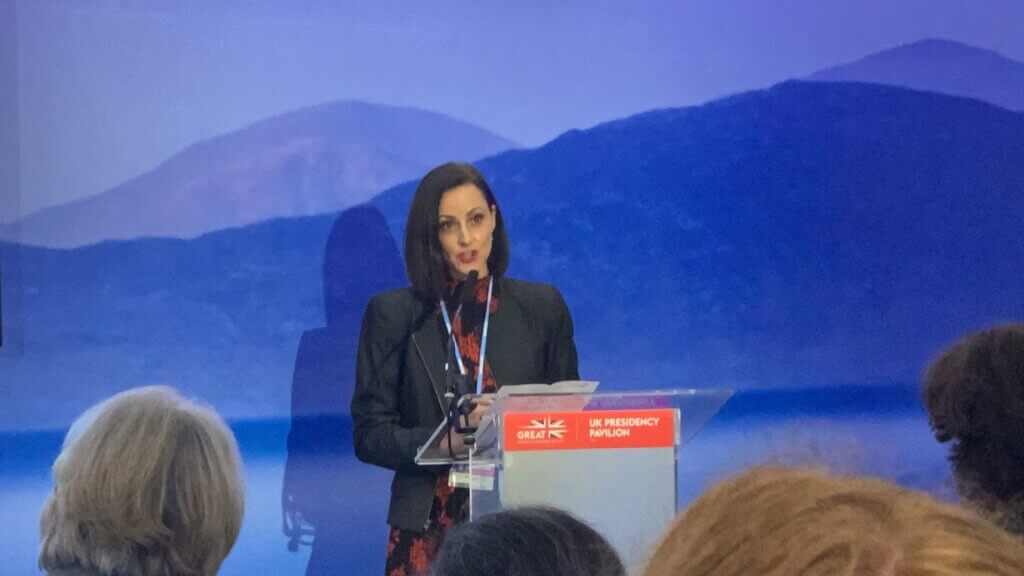
Bellona Pavilion: Carbon Takeback: applying the principles of ‘producer responsibility’ to the fossil fuel industry
The second event I attended looked more at the science and innovation theme of the day rather than gender. Still, it was nonetheless significant to see women dominating the panel and making up almost half of the audience. Oxford Net Zero and Bellona brought this panel to present how a Carbon Takeback Obligation can end fossil fuel’s contribution to global warming.
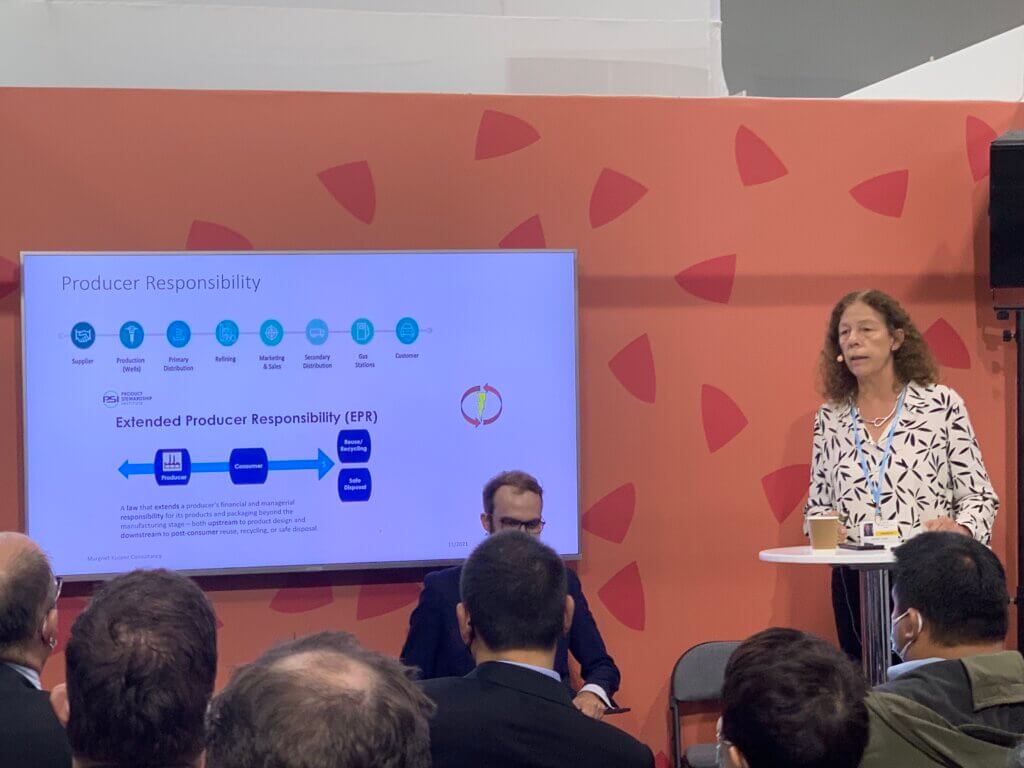
Margriet Kuijper (Consultant on CCS, CDR and climate policy) gave a great explanation of the Carbon Takeback Obligation (CTBO) concept and its potential acceptability to different stakeholders. Professor Myles Allen (Director of Oxford Net Zero, University of Oxford) then presented results from a newly-published study comparing the costs of a global CTBO with conventional mitigation scenarios. Finally, Katherine Romanak (Research Scientist, the University of Texas at Austin) discussed the monitoring required for safe and permanent CO2 disposal at scale.
The session then included responses from a couple of environmental groups. Lee Beck (International Director, Carbon Capture, Clean Air Task Force) and Marjolein Demmers (Director, Natuur & Milieu) commented on the presentations and reinforced the importance of the polluter pays principle.
Overall, this was a genuinely fascinating panel event that walked the audience through the concept of Carbon Takeback Opportunity, Carbon Capture Storage and asked questions around implementation and scale.
UK Pavilion: Women Count: Achieving Gender Equality through Improved Monitoring and Reporting
The final panel of the day looked at how we can reduce gender inequality in data by integrating gender indicators into reporting and how valuable using a gender lens is when supporting monitoring and evaluation work.
Speakers included:
· Angie Dazé – Senior Policy Advisor and Gender Equality Lead for the International Institute for Sustainable Development
· Suranjana Gupta – Community Resilience Advisor for the Harrow Commission
· Sai Racheria – Deputy Executive Director at ARROW Women
While women and girls, especially those facing intersecting inequalities, are disproportionately affected by climate change, we know they are also crucial agents of change in climate action. We need to change the framework from monitoring and evaluation to more accountable ways of working. As GNDR pointed out, there is a power imbalance of ‘us’ monitoring ‘them’, whereas ‘we’ are accountable to those most at risk, and therefore they should hold us to account.
“Women’s groups setting their own progress indicatiors and measuring them”
The panel shared ideas on how to do this, including women’s groups setting their own progress indicators and measuring them, participatory approaches, and allowing innovation to fail so that we all learn and eventually work out innovation together. There was also a call for women to lead within local structures.
Finally, ARROW Women mentioned their recently published report ‘Accelerating Gender-Responsive Climate Action Through Empowered CSOs – Capacity Needs Assessment in Bangladesh, Cambodia and Vietnam’, highlighting specific challenges women face due to climate change.
It was a very motivating day, overwhelming, and I was all talked out by the end, but I had some very empowering conversations. I wasn’t initially sure of the apparent links between the two themes of the day but a lot of the panels framed their subject matter well so that it encompassed both, once again highlighting the cross-sectional nature of climate change.
The reason for the word of the day in today’s panels left me with two key questions:
· How do we become more accountable to women and girls?
· How do we hold fossil fuel companies accountable?
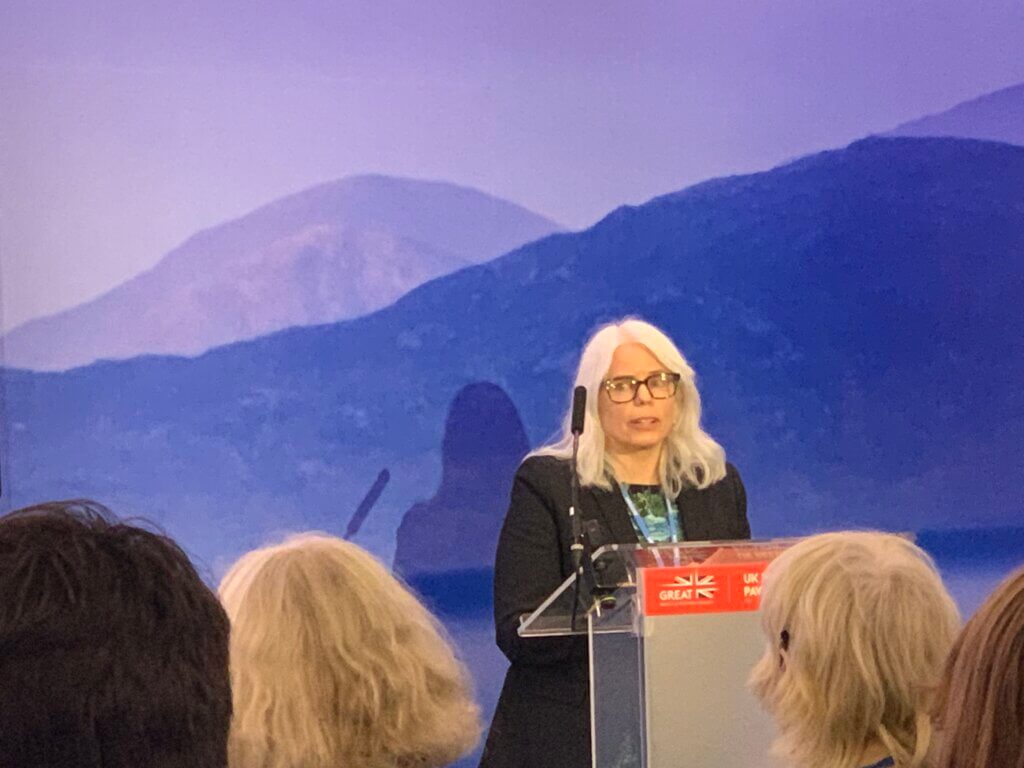
Follow us to catch up on Zoe’s live reports from COP26 on our Facebook, Instagram and Twitter.

